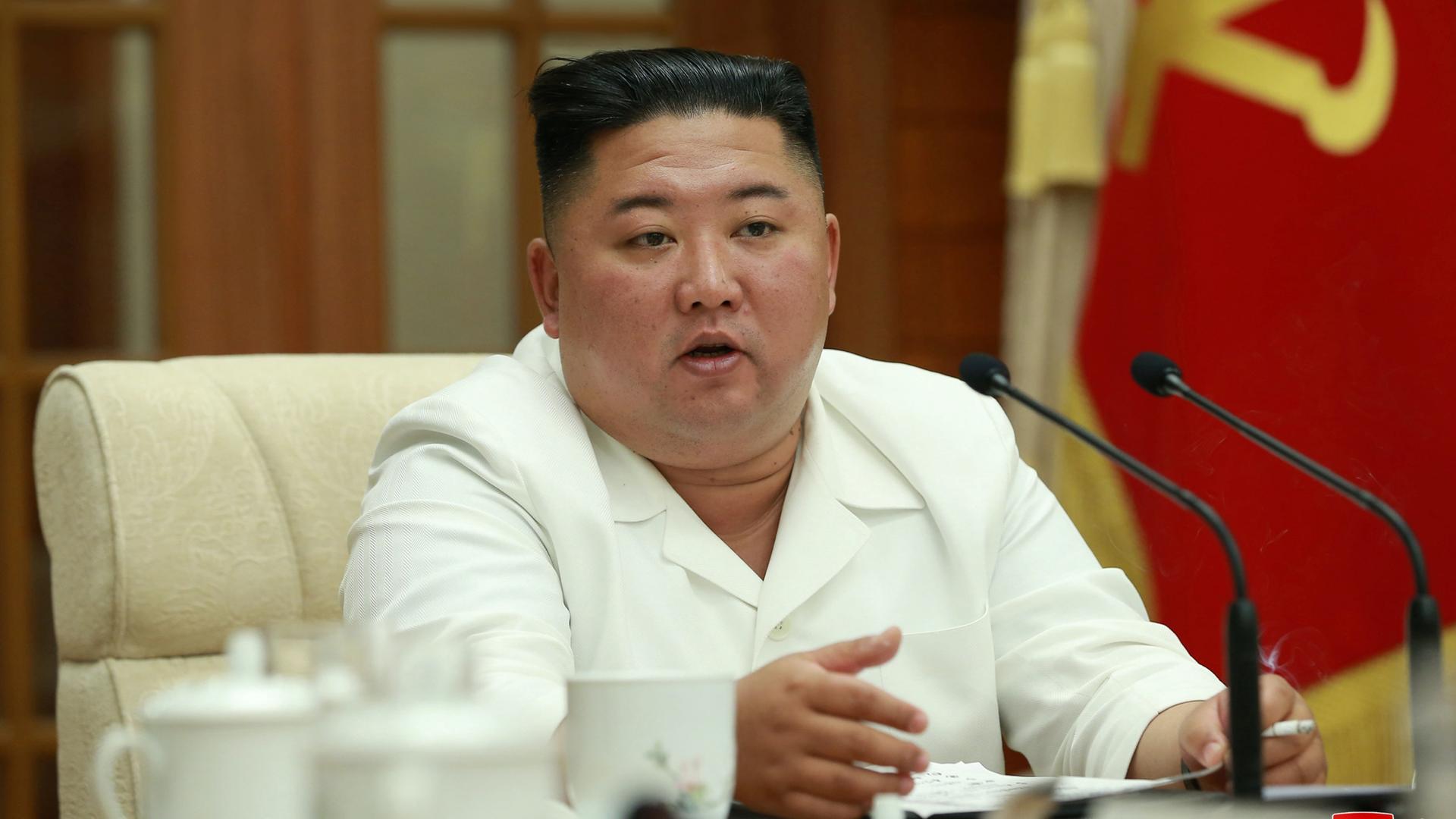A powerful storm has swept over North Korea, which is still recovering from previous deadly flooding. But relief from these disasters has been hindered because of Pyongyang’s restrictive efforts to prevent the coronavirus from entering the country.
North Korean media showed extensive flooding, downed trees and telephone poles following Typhoon Bavi’s landfall on Thursday, according to South Korea’s Yonhap News Agency.
The storm had earlier passed along South Korea’s Yellow Sea coast, causing some structural damage and the cancellation of hundreds of flights, but there were no reports of loss of life.
Bavi comes just weeks after heavy monsoon rains left extensive damage in North Korea. Reports say those storms resulted in severe flooding on farmland, destroyed infrastructure and killed at least 22 people with thousands of local Red Cross staff and volunteers participating in the recovery effort.
During previous disaster responses, North Korean workers would collaborate with foreign partners, say some observers.
Nazanin Zadeh-Cummings, who lectures on humanitarian studies at Deakin University in Melbourne, says for the past 25 years, Pyongyang has largely turned to foreign aid groups to assist with nutrition programs, healthcare initiatives and disaster responses.
She explains that in order to operate on the ground there, these agencies build close contact with North Korean officials.
“International organizations are really dependent on having relationships inside North Korea where they have access to information, access to people and access to places that are affected by disasters.”
“International organizations are really dependent on having relationships inside North Korea where they have access to information, access to people and access to places that are affected by disasters,” she says.
But during the COVID-19 pandemic, Pyongyang has closed its borders, preventing aid groups from entering the country. And now as North Korea attempts to recover from Typhoon Bavi and other recent weather events, the regime’s ability to effectively respond to disaster is curtailed due to the absence of these organizations.
Related: North Korea still officially claims zero coronavirus cases
Zadeh-Cummings says that Pyongyang’s “extreme” measures to contain the spread of the coronavirus, which also includes preventing domestic travel for foreign aid workers, is further complicated by the regime’s restrictions on external communication.
She says that other countries that have been hit by severe storms or other disasters during the pandemic have been able to coordinate with foreign partners via teleconferencing, but “North Korea doesn’t give those options.”
“You can’t have a masked Zoom meeting to work with North Korean colleagues,” says Zadeh-Cummings.
“I think the way North Korea has responded to the pandemic shows that the authorities understand and are cognizant of how weak the health care system is and how devastating COVID[-19] could be to North Korea.”
“I think the way North Korea has responded to the pandemic shows that the authorities understand and are cognizant of how weak the health care system is and how devastating COVID[-19] could be to North Korea,” she adds.
Pyongyang says it has no COVID-19 cases — a claim doubted by most observers.
According to state media, North Korean ruler Kim Jong-un recently instructed officials to refuse offers of foreign assistance out of concern that it would bring the disease into the country.
South Korea has made multiple offers to provide disaster relief but has received no response from the north.
“Seoul is willing to engage in inter-Korean humanitarian cooperation, but Kim prioritizes national pride and regime legitimacy over public welfare.”
“Seoul is willing to engage in inter-Korean humanitarian cooperation, but Kim prioritizes national pride and regime legitimacy over public welfare,” Leif-Eric Easley, an international studies expert at Seoul’s Ewha Womans University, wrote in an email to The World.
“Pyongyang may wait until its next provocation and deescalation cycle to accept South Korean overtures,” he said. “That cycle is likely to begin after the US presidential election or inauguration.”
During an appearance at a meeting of the ruling Workers’ Party on Wednesday, Kim made a rare admission. He confessed that his economic reforms are failing.
He attributed the setbacks largely to the pandemic, international sanctions and this year’s natural disasters.
Deakin University’s Zadeh-Cummings agrees that US and UN financial restrictions on North Korea contribute to the country’s challenges — in particular when it comes to receiving humanitarian assistance.
“Sanctions claim to have humanitarian exemptions, but even with the exemptions, sanctions are hampering relief efforts,” she says, noting that the exemptions process can be “long and arduous.”
But Zadeh-Cummings pushes back on Kim’s scapegoating of recent flooding. She says there was nothing “natural” about these disasters.
They don’t become disasters until they interact with human decisionmaking,” she says. “They become disasters when they interact with the inability to be prepared for disasters, the inability to mitigate risk for disasters and the inability for people to have systems to support them to be able to make it through disasters without casualties.”
She adds that the impact of typhoons and storms could be lower “if North Korea made caring for its people a priority.”
